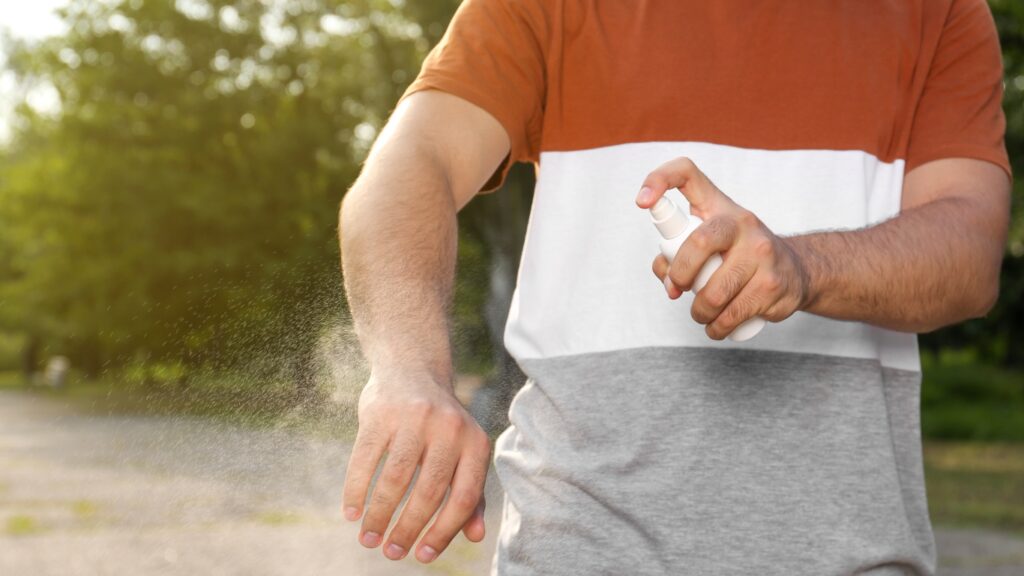
Millions of people faint every year. Fainting happens when the brain doesn’t get enough blood flow for a short period. Some situations like fear, pain, sight of blood, heat, or prolonged standing can trigger this. When the brain doesn’t get enough oxygen from the blood, it temporarily shuts down, causing you to lose consciousness and fall. Usually, you wake up quickly once you’re lying down, as this helps blood flow return to the brain. Fainting due to heat is also called heat syncope.
Fainting can be more common in the summer due to a variety of factors that are often exacerbated by heat. Here are some of the key risk factors for fainting in the summer:
- Dehydration: High temperatures can lead to increased sweating, which can cause dehydration. Dehydration reduces blood volume, lowering blood pressure and potentially leading to fainting.
- Heat Exhaustion: Prolonged exposure to high temperatures can lead to heat exhaustion, characterized by heavy sweating, weakness, dizziness, and fainting.
- Electrolyte Imbalance: Sweating not only depletes the body of water but also electrolytes such as sodium and potassium. Electrolyte imbalances can affect muscle and nerve function, increasing the risk of fainting.
- Low Blood Pressure (Hypotension): It is tough for the body to regulate blood pressure properly in summer. Heat can cause blood vessels to dilate, leading to lower blood pressure. If blood pressure drops too much, it can reduce blood flow to the brain, causing fainting.
- Prolonged Standing: Standing for long periods, especially in the heat, can cause blood to pool in the legs, reducing blood flow to the brain and leading to fainting. People who have to stand for long hours in their jobs are more susceptible to fainting during summer.
- Exertion: Physical activity in hot weather increases the risk of dehydration and heat exhaustion, both of which can contribute to fainting.
- Alcohol Consumption: Alcohol can lead to dehydration, especially in the summer. It can also dilate blood vessels, both of which can increase the risk of fainting.
- Medications: Certain medications, including diuretics, blood pressure medications, and antihistamines, can increase the risk of dehydration or lower blood pressure, making fainting more likely.
- Medical Conditions: Conditions such as diabetes, heart disease, and vasovagal syncope can make a person more susceptible to fainting, particularly in the heat. Diabetes can cause dehydration and affect blood pressure regulation. Heart disease can impair the heart’s ability to pump blood effectively, which is further stressed by high temperatures. Vasovagal syncope, a condition that causes sudden drops in heart rate and blood pressure, can be triggered by heat and dehydration.
These factors combined can lead to insufficient blood flow to the brain, causing fainting. Therefore, individuals with these medical conditions should take extra precautions to stay cool and hydrated in hot weather.
People who are anemic are also more prone to fainting. A low red blood cell count means less oxygen is delivered to the brain. In hot weather, the body is under additional stress, which can make fainting more likely.
- Age: Young children and older adults are more susceptible to heat-related illnesses, including fainting. This is due to their less effective temperature regulation and other age-related factors.
To summarize, people suffering from the ailments discussed above and on medication, anaemic, young children, old people, and those having long-standing hours jobs are more vulnerable to fainting in summer. Though the reasons are unclear, women are more prone to fainting than men. Additionally, individuals who are not acclimated to hot weather or who engage in intense physical activity without adequate hydration can easily become dehydrated or suffer from heat exhaustion, both of which can lead to fainting.
By understanding these risks and taking appropriate measures, such as staying hydrated, avoiding peak heat hours, and monitoring health conditions, these vulnerable groups can better protect themselves during the summer months.
If fainting occurs more than once for you within a few days, you must consult a doctor. He/ she may recommend increasing salt and water intake and may prescribe some medication if necessary. Exercise is also often recommended to improve blood flow. While fainting is harmless, especially in younger patients, it is important to get it checked.

Some general preventive measures to prevent fainting in summer are discussed below :
- Stay hydrated and drink plenty of fluids, especially water, throughout the day. , Eat water-rich foods like watermelon, cucumbers, etc. Staying hydrated ensures that your body has enough fluids, which helps maintain normal blood pressure and blood volume. This reduces the risk of dehydration and overheating, both of which can cause fainting.
- Avoid excessive heat during summers. Stay indoors during the hottest parts of the day and use fans, coolers, or air conditioning to stay cool. Seek shade as much as possible whenever you are outdoors. Direct overhead sun on a hot day may lead to fainting.
- Wear appropriate clothing for summer. Light, loose-fitting clothing helps to keep cool. Wear hats/ caps/scarf over your head to prevent your head from overheating.
- Rest Frequently in between. Take breaks if you are exerting yourself, especially in the heat. Do not stretch exercising or walking in hot weather for too long without rest. Keep sipping water frequently.
- Avoid standing in one place for too long. If you must stand, try to shift your weight from one leg to another. If you begin to feel dizzy, try crossing your legs and clenching the muscles in your buttocks and legs.
- Monitor electrolyte intake. Drink beverages like coconut water, fruit juices, and sports drinks to replenish electrolytes if you are sweating a lot.
- Avoid too much alcohol. Limit alcohol consumption, especially in hot weather. Alcohol increases urine production which makes you lose more fluids, and it can also dilate blood vessels, which lowers blood pressure.
- Monitor your health properly. Regular health check-ups are important to be sure that all is going well with your health. It is important to manage your medical conditions well with medication and lifestyle changes.
- Be Mindful of Medications. Talk to your doctor about your medications and how they might affect your heat tolerance.
By understanding these risk factors and taking preventive measures, individuals can reduce their risk of fainting during the summer.